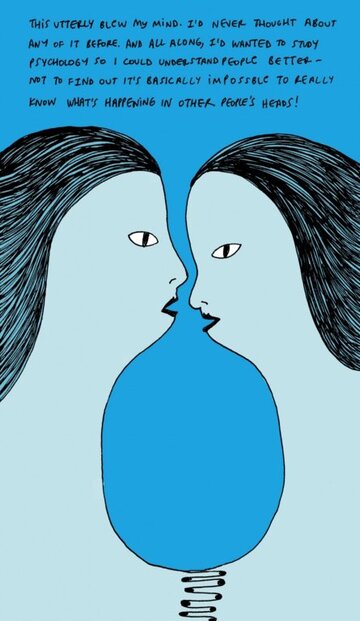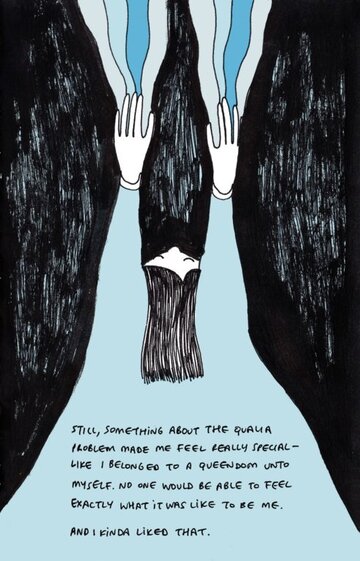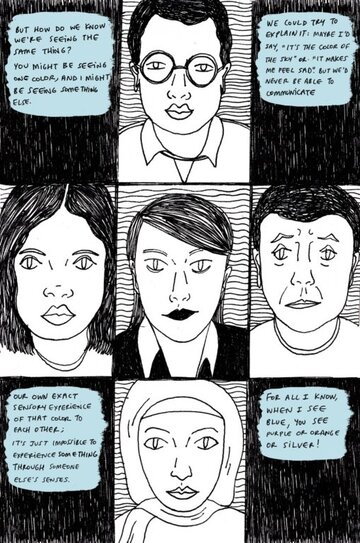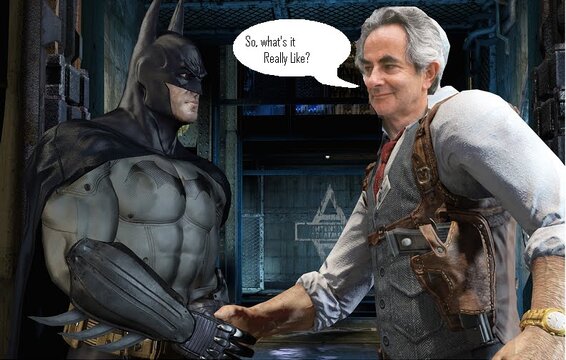S
smcder
Guest
[I made changes to (1) and (3).]
.....
Note: D'oh. Okay, I see what you mean! It might be more appropriate to say matter and motion are fundamental, and that information is a property of motion. But then, can we have motion without matter? Can we have matter without motion? I'm not sure. Still a wip (at least for me). Maybe there is a trinity of fundamentality: matter, motion, and information (the relationships betwixt matter).
There is the same problem here as when you try to say that information
Do you mean "explain how subjective experiences exist?" If so, I agree that they cannot, and that has been my only point regarding phenomenology.
Haha, yes, but (1) can we do so objectivily, and (2) I meant the subjective experiences of others.
We would be able to explain which physical systems generate/have subjective experiences and we would be able to explain how they generate/have subjective experiences.
However, we will never be able to objectively describe subjective experiences.
I dont disagree with this. I don't think we can ever objectively describe subjective experiences.
Hm, this might be some cross talk, and im not saying its your or Constances, or anybody's fault. (But it might be mine, haha.)
I think there is a difference between "explaining" subjectivity objectively, and "describing" subjectivity objectively.
For instance, we could explain subjectivity objectively by saying "its been discovered that when cluster X of X type neurons fire at X rate for X number of X seconds, patients report the subjective experience of the tast of apple pie. We've built an AI using the same architecture and principles and lo and behold, when an isomorphic,malbeit silicone cluster of X type neurons etc etc the AI reports experiencing the taste of apple pie."
Can we objectively describe the taste of apple pie? Nope. The best we could do is maybe create a printout of the pattern that the neurons fired at, haha. Or write a poem about apple pie.
Hm, I don't think subjective experience is physical. But as noted, I think it's conceivable that we could objectively explain how it exists.
You say you don't think subjective experience is physical but to me it appears you seem to continue to try and explain it in physical terms by looking for the neural substrate involved in a particular experience ... the phenomenal bonding solution is the only attempt I've seen to explain subjective experience on its own terms - if you have property dualism you have to account for both sides of the puzzle, as the neurons are put together into a brain, phenomenal experience (carried as a property of the primal stuff the neurons themselves are made of) has to also be put together and in a coherent way so that our subjective impression of the world is accurate ... so subjective experience, the mental, constrains the formation of the nervous system as much as vice versa and both have to be functional and point to the same thing, I won't survive if I perceive that apple pie as green velveeta.
Now, here you say:
For instance, we could explain subjectivity objectively by saying "its been discovered that when cluster X of X type neurons fire at X rate for X number of X seconds, patients report the subjective experience of the tast of apple pie. We've built an AI using the same architecture and principles and lo and behold, when an isomorphic,malbeit silicone cluster of X type neurons etc etc the AI reports experiencing the taste of apple pie."
1. that doesn't explain anything - it makes a correlation, when this, that
2.we already have this data, people's brains have been poked for apple pie responses
3. key word is "report" - so based on the above, if you want to rule out Zombies, fine but you have the same problem with AI, because its much easier to conceive of a machine giving such a response than it is a human, remember the report of the Turing test being passed recently? I don't think anybody believes that machine has something going on like a, what was it, seven year old child? If so, the inventor should probably be put in jail for child abuse for something or other he's done to that machine ...
Even if you plugged my brain into your brain and I somehow shared your memories, I could still argue that I don't know what it is like to be you ... that's even more clear if you hook me up to a bat, I will know about echolocation and living in the dark, etc but no one would say I know what its like to be a bat and even more clearly seen, no one would say the bat now knows what its like to be me .... so far I haven't seen anyway to get past the privacy of experience




